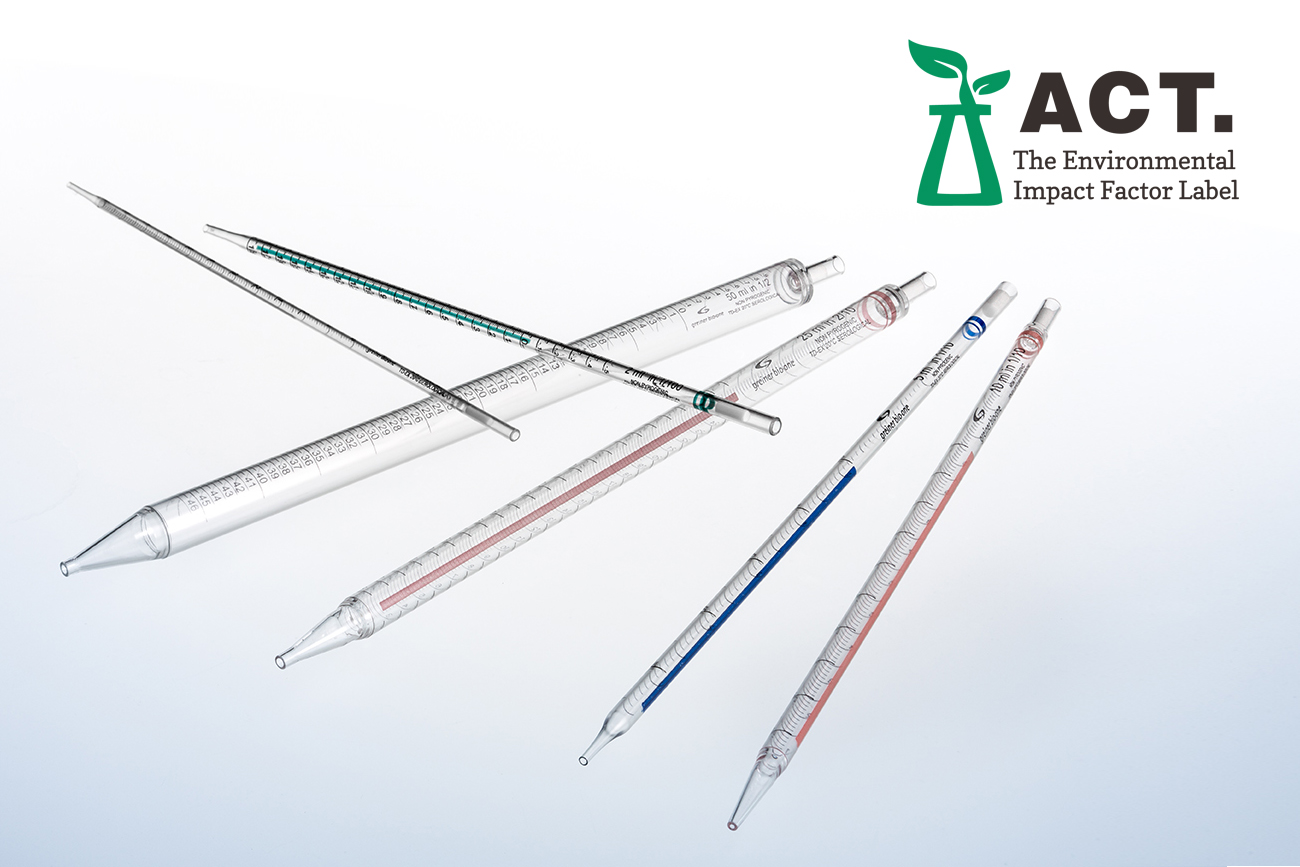Greiner Bio-One’s serological pipettes earn ACT ecolabel for sustainability
In a move towards greater environmental responsibility in the life sciences sector, Greiner Bio-One has announced that its serological pipettes have been awarded the ACT (Accountability, Consistency and Transparency) ecolabel. This certification, granted by the non-profit organisation My Green Lab, represents a significant step in providing scientists and procurement specialists with verified information about the environmental impact of laboratory products.
Environmental impact assessment
The ACT Environmental Impact Factor ecolabel, developed by My Green Lab, offers a comprehensive evaluation of laboratory products across multiple sustainability criteria. This assessment tool utilises a scoring system ranging from 1 to 10, with lower scores indicating better sustainability performance. Additionally, a colour scale from green to red provides a visual representation of a product’s environmental impact.
The ecolabel examines various aspects of a product’s lifecycle, including:
1. Manufacturing processes
2. Energy sourcing
3. Ingredient selection
4. Resource consumption
5. Packaging materials
6. Product durability
7. Recyclability
By providing this detailed breakdown, the ACT label aims to facilitate more informed comparisons between products from different manufacturers, ultimately supporting more sustainable purchasing decisions in the scientific community.
Greiner Bio-One’s performance
In the competitive market of laboratory consumables, Greiner Bio-One has distinguished itself by achieving the lowest environmental impact factor for its serological pipettes. The company demonstrated particularly strong performance in several key categories:
• Manufacturing impact reduction: The implementation of a geothermal watercooling system for mold cooling circuits has contributed to a reduction in energy consumption during the manufacturing process. Additionally, Greiner Bio-One has integrated a specialised regranulation system, allowing for the reuse of unavoidable production waste as recycled raw materials.
• Renewable energy use: While specific details were not provided, the company’s strong performance in this category suggests a significant commitment to incorporating renewable energy sources in its operations.
• Shipping impact: The optimisation of delivery routes has played a role in minimising the environmental footprint associated with product distribution.
• Packaging content: Greiner Bio-One has made notable strides in sustainable packaging, utilising cartons composed of 99% recycled material for its serological pipettes.
The adoption of the ACT ecolabel by Greiner Bio-One represents a growing trend in the life sciences industry towards greater environmental accountability. For researchers and laboratory managers, this development
offers several potential benefits:
• Enhanced transparency: The detailed breakdown provided by the ACT label allows for a more nuanced understanding of a product’s environmental impact, enabling more informed decision-making in procurement processes.
• Comparative assessment: The standardised scoring system facilitates easier comparisons between products from different manufacturers, potentially streamlining the selection of more sustainable alternatives.
• Alignment with institutional goals:
As many research institutions and funding bodies increasingly prioritise sustainability, the ability to choose products with verified environmental credentials may help laboratories align more closely with overarching organisational objectives.
While the current focus is on serological pipettes, the application of sustainability assessments to a broader range of laboratory consumables could have far-reaching implications for reducing the environmental impact
of scientific research. As more manufacturers engage with ecolabeling initiatives, it may drive industry-wide improvements in sustainable product design and manufacturing processes.
However, it is important to note that sustainability considerations must be balanced with the primary requirements of scientific research, including product performance, reliability, and compatibility with existing protocols and equipment.





